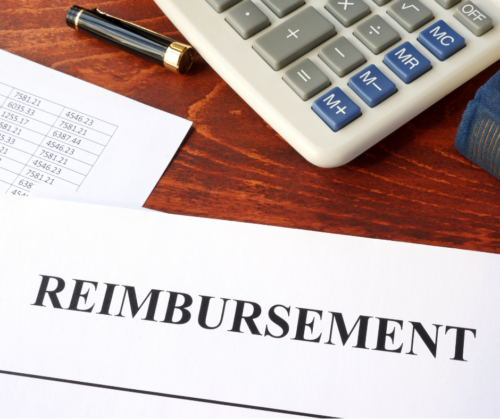 Even if your nonprofit rarely has to reimburse employees, board members, or volunteers, reimbursement requests will likely arise at some point. Do you know how to reimburse stakeholders for expenses related to your nonprofit’s operations? If you have a formal reimbursement policy, then you know how to handle these requests. Furthermore, you can direct individuals with reimbursement questions to your formal policy, reducing the likelihood of conflicts.
Even if your nonprofit rarely has to reimburse employees, board members, or volunteers, reimbursement requests will likely arise at some point. Do you know how to reimburse stakeholders for expenses related to your nonprofit’s operations? If you have a formal reimbursement policy, then you know how to handle these requests. Furthermore, you can direct individuals with reimbursement questions to your formal policy, reducing the likelihood of conflicts.
Two Categories
The IRS classifies expenditure reimbursement arrangements into two categories:
1. Accountable Plans. Reimbursements under these plans are normally not taxable income for the employee, board member, or volunteer. To receive this favorable tax status, accountable plans must meet three requirements:
- Expenses must be related to your organization’s purpose
- Claimants must adequately substantiate expenses within 60 days after they were paid or incurred
- Claimants must refund any excess reimbursement or allowance within 120 days after expenses were paid or incurred.
Arrangements in which you advance money to an employee or volunteer satisfy the third criteria only if the advance is reasonably calculated not to exceed the expected expenses. You must make the advance within 30 days of when the recipient pays or incurs the expense.
2. Nonaccountable plans. These do not meet the standards outlined above. Reimbursements made under nonaccountable plans are considered taxable wages.
Policy Items
Your reimbursement policy should specify which types of expenses are reimbursable and which are not. Make sure to note any limits. For example, you may limit the nightly cost of lodging or eliminate alcoholic beverages from reimbursable meals.
Also, require documentation for travel, mileage, and other reimbursable expenses within 60 days. The paperwork should include a summary of expenses and receipts with the date, vendor, and items or services bought. The IRS does grant some limited exceptions to its records requirements. Receipts are not required for the following:
- Per diem allowance for out-of-town travel
- Non-lodging expenses under $75
- Transportation expenses where a receipt is not available
Your policy should require the timely (within 120 days) repayment of any funds paid that exceed the established expenses.
Standard Rates Vs. Actual Expenses
Finally, specifically address mileage reimbursement, including the method you will use. Employees can be reimbursed for car use at the federal standard mileage rate of 67 cents per mile in 2024, and volunteers at the charity rate of 14 cents per mile. Unlike employees, volunteers can also be reimbursed for their commuting mileage.
Alternatively, you might reimburse employees and volunteers for the actual expense of utilizing their automobiles for charitable activities. You may reimburse employees for gasoline, lease payments or depreciation, repairs, insurance, and registration fees. Gas and oil are the only expenses that volunteers can claim.
What Makes Sense
You don’t have to create a reimbursement policy on your own. We can help you include components that are appropriate for your nonprofit’s size, mission, and activities, as well as update it as your organization develops and evolves.
© 2024

Director, HW Nonprofit Advisors
helen.weeber@hwco.cpa
Enjoy this article? Here are some others you may like:
The Standard Business Mileage Rate Will Be Going Up Slightly in 2024
Arm Your Nonprofit Against Financial Threats
Internal Hiring Can Help Fill Your Nonprofit’s Open Job Positions







